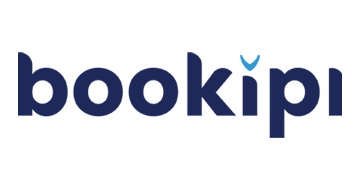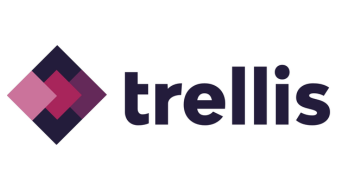
| Starting price | $25 |
|---|---|
| Free trial | Yes, 30 days |
| Free version | No |
Unleash the potential of your online business with the best commerce software solutions available. Manage your e-commerce activities seamlessly, optimize customer experience and increase sales.
Find the right tool for your needs at SaasGenius.
Discover our carefully compiled list of the best value commerce software solutions that offer exceptional value and functionality. Our top picks are industry-leading solutions that can revolutionize your online business.

| Starting price | $25 |
|---|---|
| Free trial | Yes, 30 days |
| Free version | No |

| Starting Price | $50/month |
|---|---|
| Pricing Model | Subscriber based |
| Free Trial | Yes |
| Free Version | Yes |

| Starting Price | Free |
|---|---|
| Pricing model | Free |
| Free Trial | Yes |
| Free Version | Yes |

| Starting price | $199/mo |
|---|---|
| Free trial | No |
| Free version | No |

| Starting Price | Contact for price |
|---|---|
| Pricing Model | Per Feature |
| Free Trial | Yes |
| Free Version | Yes |

| Starting Price | Contact for price |
|---|---|
| Pricing Model | Subscriber based |
| Free Trial | No |
| Free Version | No |
Commerce software has evolved far beyond simple online storefronts. Today’s platforms are sophisticated ecosystems that orchestrate every aspect of digital selling – from AI-powered personalization and livestream shopping to cross-border payments and omnichannel fulfillment.
These solutions integrate seamlessly with social platforms, marketplaces, and physical stores, creating unified experiences that meet customers wherever they are.
Modern commerce platforms leverage cloud infrastructure, composable architectures, and API-first designs to deliver flexibility previously reserved for enterprise giants. Whether you’re launching a direct-to-consumer brand, scaling a B2B operation, or transforming a traditional retailer, commerce software provides the foundation for sustainable growth in an increasingly digital world.
The best solutions don’t just process transactions – they predict trends, automate operations, and create memorable experiences that turn first-time buyers into lifetime advocates.
At SaaSGenius, we go beyond surface-level reviews. Our team of commerce experts rigorously tests each platform using real-world scenarios, analyzing everything from checkout conversion rates to API response times. We combine this hands-on testing with insights from thousands of verified user reviews to deliver rankings you can trust.
Our proprietary Genius Score evaluates platforms across four critical dimensions:
This comprehensive approach ensures our recommendations align with real business needs, not marketing hype. Discover more about our rating methodology and why businesses trust our evaluations.
Imagine trying on a new pair of sunglasses without leaving your couch or virtually placing a sofa in your living room to see if it fits the space. This AR/VR revolution represents just one facet of AI’s transformation of commerce. Leading platforms now deliver:
With 73% of respondents in the U.S. utilizing their smartphones for shopping and mobile commerce projected to reach $3.44 trillion by 2027, mobile optimization isn’t optional – it’s survival. Modern commerce platforms deliver:
| Mobile Feature | Business Impact |
|---|---|
| Progressive Web Apps (PWAs) | App-like experience without download friction |
| One-Click Checkout | Reduces cart abandonment by 35% |
| Mobile Wallets Integration | Apple Pay, Google Pay increase conversion 2x |
| Responsive Design | Automatic adaptation across 5,000+ device types |
| Offline Capabilities | Browse catalogs without connection |
The era of monolithic platforms is ending. composable commerce is a future-proof solution that will scale with your business, allowing businesses to:
Breaking down silos between channels creates seamless experiences customers expect:
For businesses processing millions in revenue, enterprise solutions offer:
Leading Options:
Growing businesses need flexibility without enterprise complexity:
| Platform | Starting Price | Best For | Key Strength |
|---|---|---|---|
| Shopify Plus | $2,300/month | High-growth brands | App ecosystem |
| BigCommerce Enterprise | $400+/month | B2B + B2C hybrid | Native features |
| Commercetools | Custom | API-first builds | Composable architecture |
Accessible solutions that grow with you:
Niche platforms excel in specific use cases:
| Week | Focus Area | Key Activities |
|---|---|---|
| 5-6 | Foundation | Domain setup, basic configuration, brand assets |
| 7-8 | Catalog | Product imports, categories, attributes |
| 9-10 | Integrations | Payment gateways, shipping, accounting |
| 11-12 | Testing | User acceptance, load testing, staff training |
Understanding true costs prevents budget surprises:
Strengths:
Limitations:
Ideal For: D2C brands, dropshippers, omnichannel retailers
Strengths:
Limitations:
Ideal For: Growing B2B/B2C businesses, international sellers
Strengths:
Limitations:
Ideal For: WordPress users, developers, budget-conscious businesses
The commerce landscape evolves daily. While competitors debate platform features, market leaders are already selling. The perfect platform doesn’t exist – but the right platform for your business does.
Start with clear objectives, test thoroughly, and remember: you can always migrate later. The cost of waiting exceeds the risk of starting.